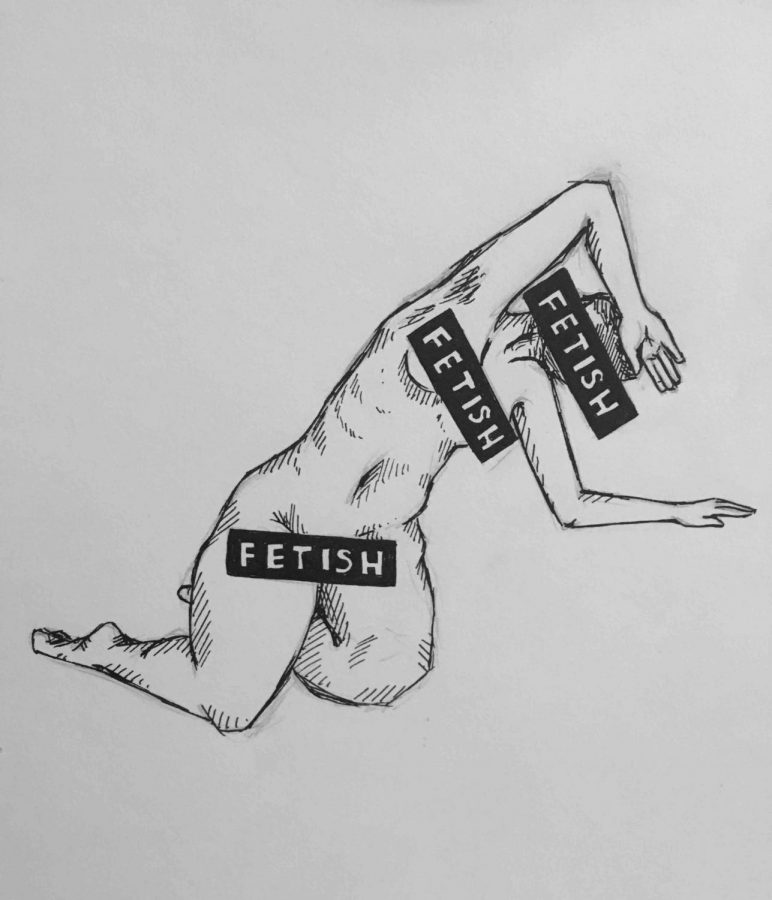When a person’s sexual identity and gender fluidity are used as the determining factor for another’s sexual gratification, the LGBTQ+ community becomes increasingly vulnerable to harassment and exploitation.
Unlike kinks, fetishes are characterized by their necessity rather than desire. People with fetishes are sexually dissatisfied if their fetish isn’t included in sexual activity. When the LGBTQ+ community is fetishized, the sexual stigma they face daily is worsened in the pursuit of fulfilling a person’s desire.
Among marginalized groups, the LGBTQ+ community is one of the most fetishized communities. Both allies and homophobes are guilty of sexualizing them.
Some fetishists, usually cisgender, straight men, are turned on by lesbian, bisexual and transgender people. These sexual identities don’t exist for the pleasure of others, but when men harass them and their partners in public or online they are asserting that their gratification is the most important facet of the sexual identity. This fixation is not appreciation or admiration; it is an uninvited obsession over wanting what one can’t attain, what one despises, or what one envies.
These instances create a negative connotation surrounding the LGBTQ+ community that fuels prejudice towards the LGBTQ+ community, making it easier to deny the acceptance of its members or their lifestyles and reduce the purpose of queer people to nothing more than a search history on a porn website.
It is our responsibility as sexually active adults to educate ourselves and others on the exploitation of marginalized communities in the fetish world. According to an article published by Duke University Press, fetishes can be described as parallel phobias in the sense that they are derived from childhood influences. Children who were born in prejudiced households often grow a fetish for what they were denied or taught to fear as a child. The hateful origin of the relationship between marginalized groups and fetishists continues to fuel sexual assault crimes and creates a very real danger to the LGBTQ+ community.
Fetishes are not inherently harmful, but when one focuses on marginalized groups have on communities, they become so. This also leads to non-harmful fetishes being stigmatized. We have to take accountability to call out the inappropriate sexualization of marginalized groups when we see it; lives depend on it.
Melissa Joseph can be reached at [email protected] or @melisstweetz on Twitter.











